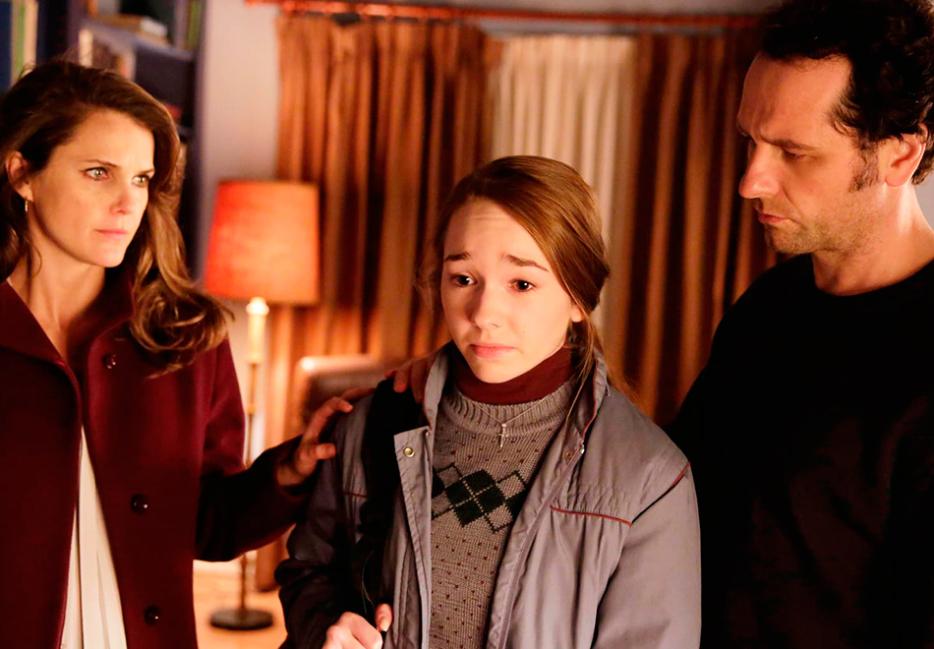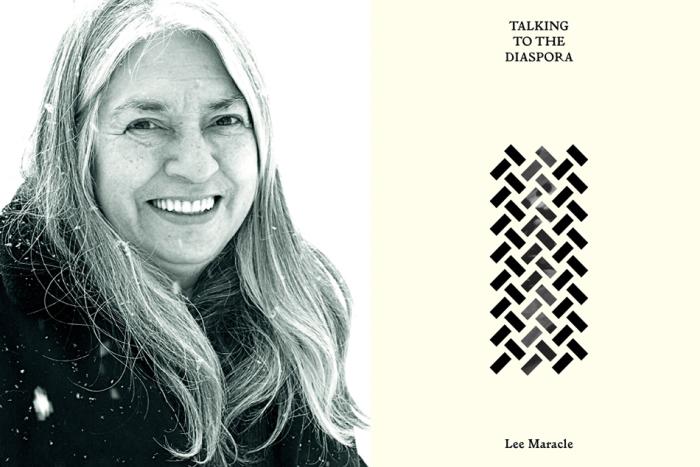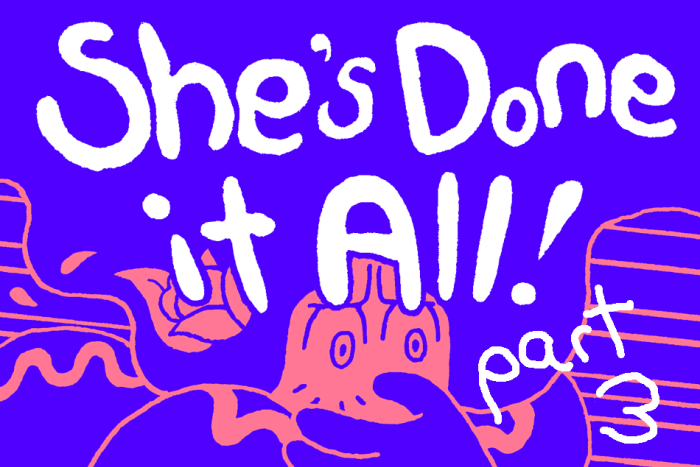A character acknowledges that she has feelings. This is what counts as a huge moment of plot and character development in The Americans.
In “Munchkins,” the tenth episode of the fourth season of the spy drama set in and around D.C. at the end of the Cold War, Elizabeth Jennings (Keri Russell) is looking for a way out of her current mission. She and her husband, Philip (Matthew Rhys), are Russian spies living as illegals in Virginia; in the show’s 2013 pilot episode, Philip was already considering flipping sides in order to protect the couple’s two American-born children, Paige and Henry, unaware of their parents’ true identities. Elizabeth, meanwhile, was the hardliner, even encouraging Philip to develop Paige as an asset as the show’s run continued. This season’s mission, however, in which she befriends Young Hee, a Korean immigrant married to Don, who is of special interest to the KGB, proves difficult for Elizabeth to complete. After years of executing numerous tasks with ruthless efficiency, Elizabeth has become attached to the people she’s manipulating.
“Elizabeth, your feelings matter,” says Gabriel, Philip and Elizabeth’s handler, played by Frank Langella.
“No they don’t,” counters Elizabeth. “They shouldn’t.”
It was quite a journey for Elizabeth to get to the point where she is questioning the costs of the actions her beliefs necessitate. Joe Weisberg, a former CIA officer and the show’s creator, and Joel Fields, a Hollywood veteran, have runThe Americans from the beginning. Under their stewardship, it has become one of the most critically acclaimed American television dramas currently on the air, a hybrid of a pulpy spy show and a contemplation of humanity and identity. Small moments like Elizabeth’s, which ultimately results in no real change in the plot, are what make the show so rewarding. I spoke to Weisberg and Fields in advance of the show’s fourth-season finale, “Persona Non Grata” (FX and FX Canada, Wednesday, 10 p.m.).
*
Eric Koreen: Congratulations on becoming the teen soap I assume you always wanted to become this past week [after Paige, who now knows her parents’ real identities, shared her first kiss with Matthew, the son of FBI agent/Jennings neighbour, Stan].
Joel Fields: Degrassi is a big deal today, and it was surely a big deal when I was in high school in Toronto back in the day. It’s all about returning to one’s roots.
I’m guessing you know the basic story you want to tell with Paige’s reaction to finding out the truth about her parents, and telling Pastor Tim that truth at the end of last year. How does something as seemingly insignificant as her first kiss arise from a creative standpoint? Is it a happy accident? How much of the design is there already?
JF: One of the happy accidents there—not just a happy accident but something of a story engine—is Paige had a crush on Matthew in season one. If you remember, she went over there and watched him play in that band. And she didn’t quite know where to put her feelings even then. This has been brewing for a long time. The fact that now everything has changed (with Paige since then) makes it all the richer. But it’s hard to imagine the story working without the backstory.
Of all the tense moments this season, the moment that had me most on the edge of my seat was when Gabriel asked Elizabeth if she wanted him to ask [KGB intelligence headquarters] the Center if they could abort the Young Hee/Don mission and find another way to get the information that they need. You sort of know the Center will say no regardless of what she says, but what Elizabeth answers (“Yes”) obviously says a lot about where she is at. This is your most steadfast True Believer. Was there a debate in the writers’ room about what her answer should be?
Joe Weisberg: I feel like we worked four years to get to that moment. We went through all of the possible scenarios for the answer, even [her giving] no answer. And that included her just kind of nodding instead of vocalizing the answer, because as you said yourself, that is a big moment for her. We talk all of the time about her changing. She has changed slower than Philip. He is more [family-centric] and emotional. Elizabeth’s changes are slower, cracks kind of appear in her. But that’s a development. Years ago, she would not have said yes. And in our minds, we think there is a chance that the Center might have tried to work something out like that. They’re not cold, emotionless machines. But I think you’re right that the strong probability is that they won’t abandon things at that moment. … That she would even consider putting [Young Hee and Don] first was very, very moving to us.
JF: What’s remarkable to me is Keri is able to do so much with so little, and that we’re able to write a scene like that and trust her. With subtle gestures and very few words, she can convey four years’ worth of character development. It’s interesting that if you look at the scene, of course the director shot all sorts of angles. But mostly it plays as a two shot (a scene in which two characters are in frame). Mostly it plays as a very simple editing pattern where you just get to watch the performances (of Russell and Langella) unfold. It’s really something to behold.
Obviously the passage of time is a big reason why she answers the question the way she does, as opposed to what she would have said in the first season, but I think it’s also Young Hee, at least a little bit. What is it about Young Hee that makes Elizabeth respond like that? I mean, she dropped a car on somebody’s head with no second thoughts last season.
JF: She didn’t know that guy. Young Hee, in order for this operation to work, she’s had to get to know. Part of what the show meditates on is, what does it mean to have a relationship with somebody? That was the first question that was asked with Philip and Elizabeth’s relationship. In a way, that gets re-explored this season through Elizabeth and Young Hee. That’s a totally fake relationship. And yet—yet—you can’t help being affected by another human being. Here’s Elizabeth who finds herself for the first time in her life with a real friend. Except on some level, there’s nothing real about it. And on another level, emotionally, she can’t help it feeling real.
Early in the season, there were many scenes of Elizabeth as Patty (her identity in that mission) bonding with Young Hee, and the viewer is mostly or completely in the dark about what she’s trying to accomplish. How daunting are those scenes to write?
JW: That is the way we prefer to tell a story. We like to tell a story as it happens. You get to avoid all of that exposition. You get to avoid all of that explaining. Philip and Elizabeth have been talking it out, over and over again, about what they’re doing. So you just kind of get to play it out like real life. For us, the mystery of what’s going on is a plus rather than a minus. There’s no reason to think the audience won’t be intrigued and won’t be patient. … As long as the relationship is interesting, we tend to think it will work that way.
This might be a bit of a clichéd question, but when Elizabeth answered as she did, it was a surprise to me—do your characters surprise you often?
JF: I’m going to go with I don’t think so, only because we tend to be telling very long stories. They may surprise us very early on, but by the time we get to actually writing a scene and holding the script and watching cuts, we feel like we’re ahead of them. But we’re really dedicated to it feeling real. Who surprises us sometimes are the actors. That’s always one of our favourite parts of the process, to be on set or watching dailies or watching a cut, and seeing that there’s nuance in a performance in a way that we didn’t expect or in a way [that an actor] comes at one of those revelations that has a surprising element.
This season features several characters questioning whether their ideology is worth doing the things they do. Philip is used to that sort of thinking, and that helps him with Martha [an asset Philip develops within the FBI]. However, it is relatively new to Stan and Elizabeth, and even Oleg (who works at Russia’s Washington rezidentura), to an extent. How conscious is the decision to have all of these characters navigating different versions of the same internal struggle? Or do you see it like that at all?
JW: That’s the world of the show—the world of the show is spies, law enforcement officers. Spies and law enforcement officers, by virtue of their professions, those are the issues they face. That’s a big part of what the show is about.
JF: I would just add to your question, which is a process question—the answer is simultaneously conscious and unconscious. It’s conscious in that we do talk about these things. We talk about scenes. We talk about the [themes] and how all of that stuff resonates between the characters, when it’s too much and when it’s not enough. We also try to consciously suppress it into our subconscious. We try to drop it. We try to not write to it. We trust that stuff will emerge subconsciously through the storytelling, so that it rings true. If you try to push any of that stuff too hard, it starts to ring false.
When you introduce a character like William [an illegal who works at a lab], who the audience doesn’t know and is essential to the season-long biological weapons arc, does he emerge first as a function of the plot? Or, because he is navigating those same struggles that your main characters are, do you want him to act as a mirror to them and then you figure out how he works within the plot?
JF: I don’t think there’s a formula for that. Is there, Joe?
JW: No. It’s both. The question is right in that there are absolutely two things that are happening. They sort of interweave with each other.
JF: When Joe says “both,” that is a word you hear frequently in our offices. The moment that makes us happiest is when a visiting director comes in and says, “Is this character experiencing this or experiencing that?” And we’ll say, “Both.” You love the idea that human beings don’t have singular motivations or singular subconscious drives or even singular thoughts in their heads, but that there could be one or two or many contradictory feelings, motivations, ideas that are driving people. That seems more real to us.
The announcement came out recently that there will be two more seasons after this one—a full thirteen-episode fifth season and a ten-episode final season. What was the process like for you guys to figure out that was the right amount for the show? How much planning goes into it? I assume you know where you want it to end, but how do you determine how much time you need to get there?
JF: As we talked through the story we wanted to tell, it just became apparent—the shape that it would need to take in order to tell it. I would say it’s a combination of story-breaking and mathematics.
So you’re saying writers do need to know math. My mom was right when she said I shouldn’t drop Grade 12 math.
JF: For me, anyway, the math only makes sense when it’s contextualized. So the grade-school math wasn’t really helpful. It’s only when you’re breaking stories or figuring out the budget of your show that I could work it out.






